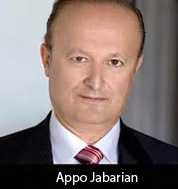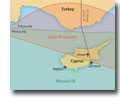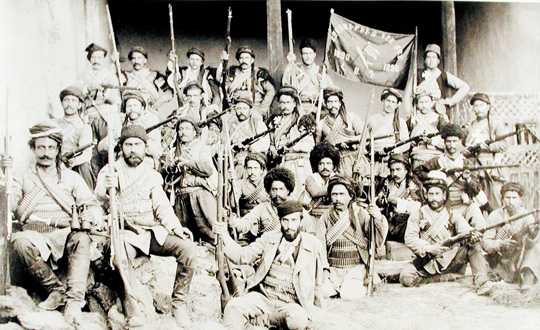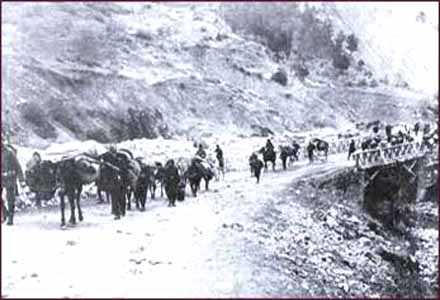 By Appo Jabarian
By Appo Jabarian
Executive Publisher/Managing Editor
USA Armenian Life Magazine
For decades, hardly a month went by without Turks worrying about what new actions would the Armenian Diaspora take. No year went by without Turkish officials acknowledging the nightmare “caused by the Armenian Diaspora.”
In late 2010, at a time when he was searching for ways to render the Armenian Diaspora “powerless” through the infamous Protocols with Armenia, Turkey’s Foreign Minister Ahmet Davutoglu lamented that some of the Diaspora’s actions were like “the sword of Damocles hanging above our heads.”
Mr. Davutoglu’s comments were followed by Turkey’s Prime Minister Recep Tayyip Erdogan being dealt with an official embarrassment in Lebanon when the Lebanese Armenians mounted a remarkable protest against him. Like much of the world, Lebanon has been home to hundreds of thousands of Armenians who harbor deep animosity toward Turkey over the 1915-1923 Armenian Genocide and the resulting massive dispossessions and illegal occupation of their ancestral homeland in Western Armenia and Cilicia.
During Erdogan’s visit, several hundred Lebanese Armenians clashed with army troops during a protest in Beirut. They tore up Erdogan’s billboard-size giant posters in the capital’s Martyrs’ Square to denounce his presence.
In early 2010, Erdogan was ‘greeted’ with similar ‘stately’ embarrassment in Argentina when he abruptly cancelled the Argentina leg of his tour of Latin America because city officials in Buenos Aires called off an event inaugurating a monument to the ‘revered’ founder of modern Turkey, Mustafa Kemal Ataturk.
Despite the fact that on numerous occasions, Erdogan called on the First Forum of the World Azerbaijani and Turkish Diasporas Organizations to “counter the intensifying attacks from the Armenian Diaspora,” no tangible results were achieved in subduing or overpowering the descendants of the Armenian martyrs and survivors.
Now, some eighteen months later, taking valuable time out his busy schedule, FM Davutoglu has once again opted “to initiate a personal ‘dialog’ with the Diaspora on Armenian-Turkish issues. Earlier this month, Davutoglu met with Armenian-Americans, as follow up to the meetings he held in Washington last March. During their conversation in May, the Armenian interlocutors frankly advised the Turkish Foreign Minister that Ankara must address Armenian demands for genocide recognition and restitution before any ‘reconciliation’ could be achieved. The Turkish side reportedly indicated a willingness to discuss these thorny issues with Diasporan representatives. Despite the seeming openness of Foreign Minister Davutoglu, Armenians have well-founded reasons to mistrust such overtures, given Turkey’s decades-long denial of the Armenian Genocide and its antagonistic policies toward the Diaspora, Armenia and Artsakh. Armenians also suspect that Turkish officials may exploit meetings with the Diaspora to score propaganda points with world public opinion,” reported Harut Sassounian, Publisher of The California Courier.
Is it possible that Ankara has learnt that honesty is the best policy; and that political courage is a lasting virtue? Are these values driving Turkey’s policy of ‘overtures’ to the Armenian Diaspora?
During his presidency, in an effort to eliminate Turkey’s festering problems with world Armenians, Turkish Pres. Turgut Ozal seemed receptive to the idea of addressing the Armenian issue in a more open and fair manner.
According to a recent article in Turkish daily ‘Today’s Zaman,’ “behind closed doors, Pres. Ozal defended the idea of holding negotiations with Armenians to settle a dispute that has had great potential to deal a serious blow to Turkish interests in international politics. Ozal’s close friends and former aides spoke to the newspaper about the politics of the day. In 1980’s Armenia was still part of the Soviet Union and Ozal defended the idea of holding negotiations with the powerful Armenian Diaspora. His close friends and advisers say that if Ozal were alive today, the problem of the Armenian Genocide might have already been solved.”
Pres. Ozal’s “aim was to solve the [Armenian] problem before it got too late and through few concessions after reaching a deal with the Armenians. … Ozal sought to learn what Armenians wanted from Turkey. … In 1984 he ordered his advisors to work on possible scenarios about the economic and political price Turkey would have to pay if Turkey compromises with the Armenian Diaspora, an early Turkish acceptance of the term ‘Genocide.’ Another scenario was also prepared. This plan sought to gauge the political cost of a Turkish acceptance of genocide within 20 to 30 years if Turkey is forced to accept it one day,” Vehbi Dinçerler, 71, a former education minister and a state minister in Ozal’s Cabinet, said to “Today’s Zaman.”
Ozal was right. The decades following his predictions, the list and the magnitude of Armenian political victories in much of the world proved to be fairly impressive. Turkey was dealt with one political defeat after another.
In all fairness to a growing segment of Turkish society, many lucid and courageous voices from Turkey have been speaking out against the long-standing official Turkish policy of cover-up and deception regarding the Armenian Genocide and the legitimate Armenian demands for restitution.
Righteous Turks have acknowledged the Genocide at the cost of risking their freedom and lives. I would like to name a few of them: Award-winning Turkish Publisher Ragip and his son Deniz Zarakolu; Turkish writers/ journalists: Elif Safak, Ayse Gunaysu, Ahmet Insel, Baskin Oran, Cengiz Aktar, Ali Bayramoglu, Erol Ozkoray, Kemal Yalcin, Nobel laureate Orhan Pamuk, Dogan Akhanli, Sait Cetinoglu, Ahmet Altan; Turkish scholars: Ayse Nur Zarakolu, Omer Asan, and Taner Akcam.
In a March 6, 2010 article titled “Genocide,” popular Turkish writer Ahmet Altan had written in Taraf Turkish newspaper: “When a commission of the US Congress votes for ‘genocide,’ we are ‘humiliated’. Do you know what humiliation is? Humiliation is millions of people holding their breaths for the outcome of a few votes in somebody else’s parliament. That is humiliation. … Turkey is humiliated because it itself cannot shed light on its own history, has to delegate this matter into other hands, is frightened like hell from its own past, has to squirm like mad in order to cover up truths.” Mr. Altan then lambasted Turkish officialdom’s nearly century-old policy of denial.
Turkish officials can only blame their defunct policies of denial for causing the escalation of anti-Turkish international backlash.
Back in early 2010, I had written: “Maybe it’s high time for Ankara to consider adopting Mr. Altan’s approach, because time will prove him as being genuinely patriotic and pragmatic. His clear thinking regarding the dark pages of Turkish history can certainly illuminate an atoned Turkey’s pathway to a bright future.”
Are Turkish Pres. Gul, PM Erdogan, and FM Davutoglu sincere in their efforts to echo Mr. Altan’s and other courageous Turks’ wisdom? Are Messrs. Gul, Erdogan, and Davutoglu genuinely vying to emulate the late Turkish Pres. Ozal?
Sooner or later their true intentions will be revealed.
In the meantime, in my humble opinion, prudence and vigilance on the part of all Armenians are the orders of the day.





